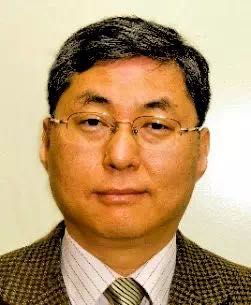时间:2019年12月16日16:30
地点:北航学院路校区一号教学楼(老主楼)204教室
题目:Intelligence on Silicon: From DNN Accelerators to Super-Intelligence AI-SoCs
主办单位:北航大数据科学与脑机智能高精尖创新中心
主讲人:Hoi-Jun Yoo 韩国技术研究院(KAIST)教授

简介Biography:
Professor Hoi-Jun
Yoo is an IEEE fellow and ICT Chair professor of School of Electrical
Engineering and the director of the System Design Innovation and Application
Research Center (SDIA) at KAIST. He was the TPC Chair of ISSCC 2015, a Plenary
Speaker of ISSCC 2019 entitled “Intelligence on Silicon: From Deep Neural
Network Accelerators to Brain-Mimicking AI-SoCs”. His current research
interests are Bio Inspired AI Chip Design, Multicore AI-SoC design including
DNN accelerators, Network on a Chip, and high speed and low power memory. He
has published more than 250 papers, and wrote or edited 5 books, “DRAM Design”
(1997, Hongneung). Dr. Yoo received Order of Service Merit from Korean
government in 2011 for his contribution to Korean memory industry,
Scientist/Engineer of the month Award from Ministry of Education, Science and
Technology of Korea in 2010, Kyung-Am Scholar Award in 2014. He also received
the Electronic Industrial Association of Korea Award for his contribution to
DRAM technology in 1994, Hynix Development Award in 1995, the Korea
Semiconductor Industry Association Award in 2002, Best Research of KAIST Award
in 2007, Excellent Scholar of KAIST Award in 2011, Best Scholar of KAIST Award
in 2019, and was a co-recipient of ASP-DAC Design Award in 2001, A-SSCC
Outstanding Design Awards in 2005, 2006, 2007, 2010, 2011, 2014, ISSCC/DAC
Student Design Contest Awards in 2007, 2008, 2010, 2011, and ISSCC
Demonstration Session Recognition in 2016, 2017, 2019 and Best Paper Award of
IEEE AI-CAS in 2019. He has served as a member of the executive committee of ISSCC,
Symposium on VLSI, and A-SSCC. He also served as the IEEE SSCS Distinguished
Lecturer ('10-'11) and International Symposium on Wearable Computers (ISWC)
2010 and A-SSCC 2008. He was a guest editor of IEEE JSSC and IEEE T-BioCAS, and
is an associate editor of IEEE JSSC and SSCL.
摘要Abstract:
Recently, Deep
Neural Networks are changing not only the technology paradigm in electronics
but also the society itself with Artificial Intelligence technologies.
In this lecture,
firstly, the status of AI and DNN SoCs will be reviewed from two perspectives:
the applications such as data-center oriented and the mobile and embedded AIs,
and the evolution of DNN Accelerators. Especially, mobile and embedded deep
learning hardware, low power CNPU and reconfigurable DNPU and UNPU which can
accelerate both CNN (Convolutional Neural Network) and RNN (Recurrent Neural
Network) will be introduced. In addition, their high efficiency and flexibility
with “Dynamically Reconfigurable Processor” architecture will be explained in detail
with the real chip measurement results, such as human emotion recognition and
super-resolution image reconstruction.
Secondly, KAIST’s approach for the super-intelligence will be explained
with novel design methodology. The deep neural networks and the specialized
intelligent hardware will implement not only the inference but also learning on
a chip. The personalization and autonomous adaptation to the environmental
changes are possible with the on-chip learning capability. Even Deep
reinforcement learning can be accelerated by a dedicated chip for the many
exciting applications such as object recognition and the object tracking
applications are implemented with low-power and high-performance for autonomous
vehicles, and intelligent robots.